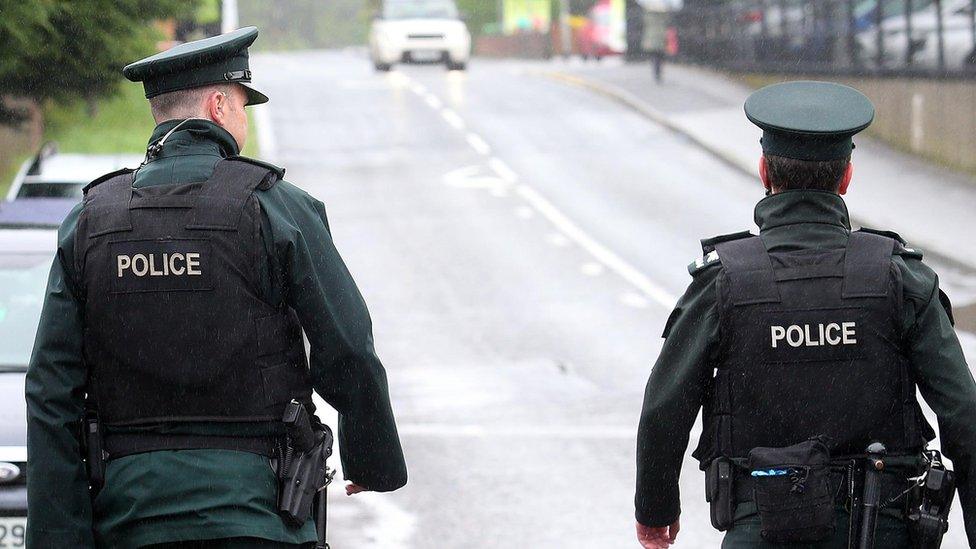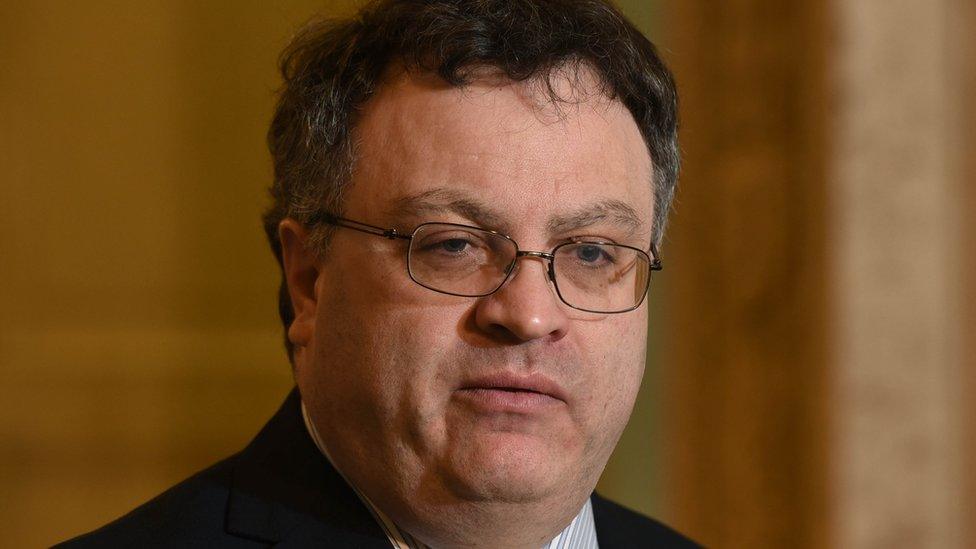Holiday pay ruling: What NI employees need to know
- Published

Northern Ireland could face a massive public sector back-pay bill after a tribunal finding that police officers and civilian staff are owed money for a shortfall in holiday pay dating back 20 years was upheld.
The class action was brought by a group representing more than 3,700 police officers and civilian staff, but the implications could be wider with a trade union saying the case involves all workers and not just those in the public sector.
Basic, normal and holiday pay
The key question is not what is holiday pay, but rather what is normal pay as this determines holiday pay.
Under UK law, most workers who work a 5-day week must receive at least 28 days' paid annual leave a year, external.
However, if you regularly work overtime, your normal pay would be more than your basic pay.
Normal pay is calculated by combining your basic pay, along with any extra hours you work on a regular basis - ie overtime.
If you regularly work overtime, your holiday pay should reflect your normal pay.
What has happened in Northern Ireland?
The Court of Appeal upheld a tribunal ruling that Police Service of Northern Ireland (PSNI) holiday pay should be based on pay including overtime and allowances, if this is what the person is "normally paid".
The solicitor representing nine of the 11 lead police claimants and two civilian staff claimants, John McShane, said the previous calculations of holiday pay were based only on a basic rate of pay and had not "taken into account the often extensive additional hours required by their work which therefore form part of their normal pay".
This meant they received less pay when on holiday compared to when they were working.
The legal claim was based on a case in Britain in 2014 in which the Employment Appeal Tribunal in Great Britain ruled that overtime should be included in holiday pay.
The judge said the pay issue was "extremely serious" and the current situation breached European law.
When the original tribunal decision was made in 2018, the PSNI and Police Authority faced a bill of up to £30m, but that figure could now have grown to at least £40m.
It is understood individual payments could be in the region of £10,000 on average.

Trade union Nipsa said the ruling could go beyond the public sector and affect private sector employees as well.
There are about 208,000 public sector employees in Northern Ireland, latest official figures show.
The public sector bill would be a big challenge to Stormont's budgets, especially given the payments that will need to be made to RHI claimants and the fact that departments are currently being run without ministerial supervision.
What happened in Great Britain?
When the Westminster government realised the potential financial exposure of the 2014 decision, they rushed through legislation to cap the costs.
These changes in the regulations limited employees to only being able claim for money owed going back two years.
Northern Ireland did not follow suit, despite the then Stormont Employment Minister Stephen Farry holding discussions with civil servants about the potential financial implications of the holiday pay ruling.
On Friday the Department for Business, Energy and Industrial Strategy confirmed it held detailed talks with its Stormont counterparts about the 2014 cap, but it was never extended to Northern Ireland.

Timeline
2014 - Bear Scotland v Fulton
In November 2014, judges decide in a case known as Bear Scotland v Fulton, external that employees who were regularly required to work overtime should get extra holiday pay.
As a result, in December 2014, the UK Government takes action to reduce the potential costs of that decision to employers and the "potentially damaging impact of large backdated claims".
It makes changes to regulations under the Employment Rights Act 1996 so that claims to employment tribunals on this issue cannot stretch back further than two years - effectively adding cost controls.
April 2017
In 2017, more than 1,000 PSNI officers take legal action over holiday pay in the light of the Bear Scotland ruling - at his stage some police forces in Great Britain had already settled claims with officers.
The then Deputy Chief Constable Drew Harris said it was "understandable" that officers should seek their entitlements, but warned that because of the amount of money involved, the case could have an impact on the PSNI's operations.
November 2018
PSNI and the Police Authority face a holiday pay bill of up to £30m after a tribunal ruled in favour of a class action brought by a group representing more than 3,700 officers and staff.
A judge said staff were owed money as their holiday pay had been based on basic working hours, not the actual hours worked including overtime adding that the pay issue was "extremely serious" and breached European law.
June 2019
The Court of Appeal in Belfast upholds the 2018 tribunal finding meaning that 3,700 police officers and civilian staff are owed money for a shortfall in holiday pay dating back 20 years, with the potential bill now up to £40m with warnings that it could go even higher.

- Published21 June 2019

- Published19 June 2019

- Published17 June 2019
